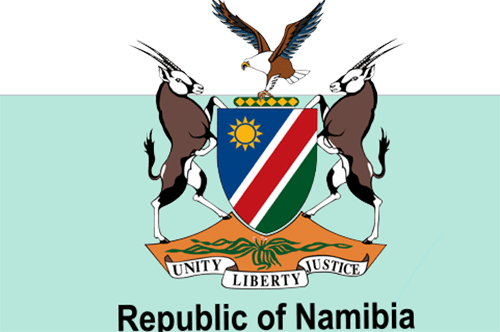President Hage Geingob has charged all ministers to ensure they implement to the letter projects under their portfolios, including those contained in the fifth National Development Plan and the Harambee Prosperity Plan II without delay.
The President called for an acceleration in projects’ implementation, with no excuse about limited resources.
Geingob made these remarks during the opening of the two-day 2022 Cabinet Bi-Annual Performance Review in the capital on Friday.
The event brought together ministers, deputy ministers, executive directors, regional governors and presidential advisors. It was targeted to examine progress made with the implementation of HPPII, with identified focus areas on enabling policy and legislative frameworks and strategic programmes that will unlock opportunities to accelerate Namibia’s economic recovery and growth.
“We acknowledge that much work still remains to be done if we are to realise the objectives set out in our Vision 2030.
You must prioritise those projects, and at the end of the day come back and report a 100% execution rate,” said Geingob.
The President stated that there is a promise of recovery in several sectors of the economy. Thus, he urged ministers to take advantage of these opportunities and come up with new ideas that will reinvigorate the economy, create new employment opportunities and open up new horizons for sustained growth and innovation.
According to him, the government’s ultimate priority in 2022 should be to do the utmost best to meet public demands within the limits of available resources.
“At the present stage where we are eager to achieve so much, we find ourselves constrained by the economic and financial realities of the day. However, this should not be an excuse to deter us from continuing to effect change by reinvigorating our governance architecture and reimaging our socio-economic development trajectory,” he observed.
Geingob added that at a time when Namibia is faced with limited resources, it is imperative that government is able to boost innovation and productivity in the public sector to ensure there are no excuses to delivering public goods and services.
He stressed that no matter what, government must deliver on public goods because they are entrusted with the responsibility of fighting poverty, unemployment as well as restoring the economic trajectory to yield more inclusive growth and shared prosperity.
“We cannot operate in silos, especially when we are all required to achieve important goals with limited resources. We have been placed here to serve the interests of the people, and therefore must ensure that meeting the needs of the people should be our first, last and only priority,” he stressed.
Furthermore, Geingob noted that the past several years have not been kind to Namibia’s development aspirations.
At a time when Namibia was looking forward to consolidating economic growth, the global economy experienced a meltdown, whose effects were felt most by developing nations, including Namibia.
To make matters worse, a period of relentless droughts exacerbated the situation, and although signs were showing that Namibia was emerging from that difficult chapter, Covid-19 arrived on Namibia’s shores to mount even greater pressure on its fragile economy.
The President further touched on the ongoing Russia-Ukraine conflict, that as an independent intervening variable has started to impact negatively on the global economic fundamentals, as already witnessed in record high petroleum prices, as well as envisaged global shortages in fertilisers, grain and wheat supplies.
In his closing remarks on Saturday, Vice President Nangolo Mbumba touched on some of the outcomes from the retreat, saying there is an urgency for a policy such as the New Equitable Economic Empowerment Bill (NEEEB) to be implemented speedily. He said there were discussions on the discovery of oil and green hydrogen in Namibia, and their impact to the domestic economy.
Also, there was a suggestion from the Namibia Investment Promotion and Development Board to immediately address key bottlenecks to implement projects which are already on the table, and to jumpstart the economy and create much- needed jobs.
Mbumba asked the delegation to hold hands and work together to do away with the identified bottlenecks, which have the potential to pose risks to the efficient and effective delivery of public goods and services to society and for the needed economic recovery. -mndjavera@nepc.com.na



